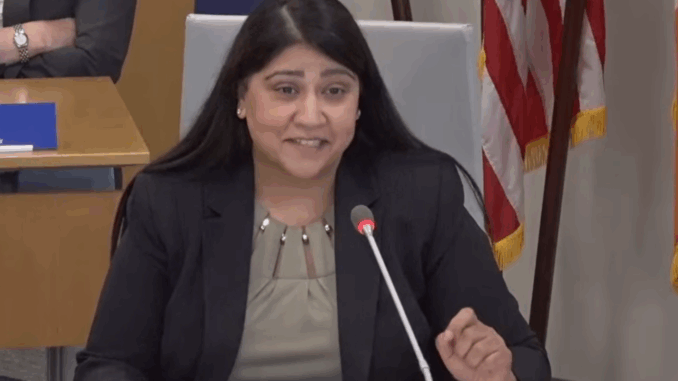
By Hank Russell
Some local elected officials took shots at the Metropolitan Transportation Authority (MTA) over its proposal to raise fares on Long Island Rail Road (LIRR) riders next year. They claimed that the agency is continuing to squeeze commuters dry after subjecting them to congestion pricing and an increase in the Payroll Mobility Tax.
During the July 30 board meeting, the MTA announced that LIRR commuters may see a 4.4% increase in weekly and monthly tickets. All other ticket types would increase up to 8%, with no fare increasing more than $2. The Off-Peak CityTicket would go from $5 to $5.25 and the Peak CityTicket from $7 to $7.25. These proposals also apply to the Far Rockaway ticket. The Peak CityTicket and Far Rockaway ticket, which are currently promotional, would become permanent fare products.
The board justified the rate hikes, citing a predicted $429 million budget hole for Fiscal Year 2029 due to the growing use of its Access-A-Ride Paratransit program for commuters with physical disabilities.
“The ticket policy changes proposed today round out our efforts first launched in 2022 when we introduced fare-capping, and other fare promotions, to modernize our payment system and make navigating NYC’s transit system easier and more affordable,” said MTA Chief Customer Officer Shanifah Rieara in a statement. “We shared our plan to finalize the tap-and go rollout, which is how 75% of subway and bus riders are already paying their fares; and on the railroads, these fare policy proposals offer clearer options and better savings – encouraging more travel with greater flexibility.”
The MTA’s plan would raise fares without addressing systemic inefficiencies, including $700 million in annual losses from fare evasion, said state Assemblyman Daniel Norber (R,C-Great Neck). He also said that the agency’s reliance on fare increases to offset its mismanagement is an insult to taxpayers, especially as the MTA projects $500 million in revenue from congestion pricing this year while planning additional 4% rate hikes every two years.
“I am taken aback by the MTA’s audacity to demand more from New Yorkers while failing to address its own rampant inefficiencies,” said Norber. “Long Island families relying on the LIRR are hit even harder with a 4.5% increase, all while the MTA loses $700 million to fare evasion and $800 million in uncollected tolls. This needs to be a case study in mismanagement. I urge all MTA board members to reject this proposal and force the agency to clean up its act before asking residents to foot the bill.”
Long Island Life & Politics asked the MTA for a response. The agency referred LILP to a press release and a video of its recent board meeting.
During the board meeting, MTA Chief Financial Officer Jai Patel pointed out that fare evasion is down 30%. “That helps us in the collection of revenue,” she said. Patel also mentioned that commuter rail revenues exceeded the budget by 2% while overall operating expenses were 1% below budget, at $56 million.
“Our board gave us a challenge and we delivered,” Patel said.
Based on the MTA’s $1.9 billion adopted budget, according to Patel, 33% goes to payroll, followed by non-labor and other expenses (24%), debt service (13%), health and welfare (13%), pensions (8%) and overtime (4%),
However, Assemblyman Ed Ra (R-Franklin Square) noted that the MTA is not just receiving revenue from ridership alone. He said the agency is also receiving money from the state, in which Governor Kathy Hochul allotted $1.4 billion a year in the state budget by increasing the Payroll Mobility Tax, which he voted against. Patel said revenue growth for this tax has been “higher than expected,” according to the state’s Division of Budget forecast.
Ra said that the agency is expected to collect an additional $500 million this year, from the congestion pricing program, in which drivers pay $9 to drive below 60th Street in Manhattan.
It’s disappointing, but not surprising, that the MTA is proposing another round of fare and toll increases,” Ra said. “Call it what you want—it’s a hike. And it’s just the latest in a long line of burdens the MTA is placing on us.”
As previously reported in LILP, Ra — a longtime critic of the MTA — has called for a forensic audit of the agency.
Where is all this money going? Surely not towards addressing chronic service issues, outdated infrastructure and serious safety concerns,” Ra said. “Rampant fare evasion is costing the system hundreds of millions more each year, and riders and drivers are footing the bill. The MTA must be held accountable, and the board should reject this proposal. New Yorkers deserve better than endless price hikes with nothing to show for them.”

